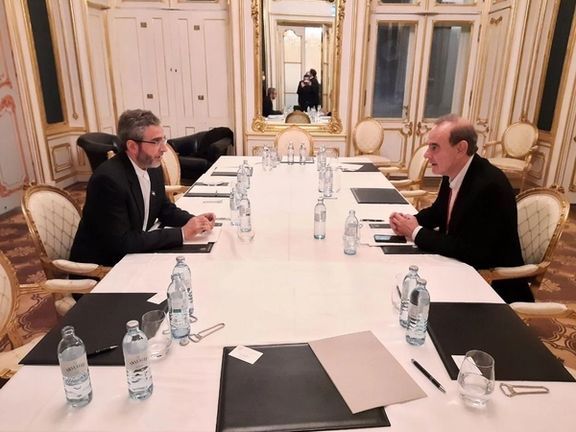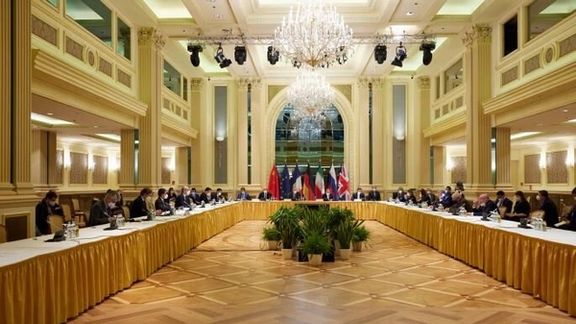Iran's Chief Negotiator Criticizes Opponents With Rare Realism

Iran's nuclear negotiators since 2003 have oscillated between ruthless fundamentalism, ultraconservative idealism, and moderate conservative pragmatism.

Iran's nuclear negotiators since 2003 have oscillated between ruthless fundamentalism, ultraconservative idealism, and moderate conservative pragmatism.
The hardline ruthless fundamentalism has consistently simmered beneath the surface, irrespective of the government in charge of foreign policy, whether ultraconservative like the Ahmadinejad and Raisi administrations or more pragmatic like former President Hassan Rouhani, former Majles Speaker Ali Larijani, and former Nuclear Chief who, at times, guided Tehran's nuclear policy.
Until recently, Iran's current Chief Nuclear Negotiator, Al Bagheri-Kani, a protégé of former hardliner chief nuclear negotiator Saeed Jalili, was believed to oppose any rapprochement with the United States and the West over the nuclear issue. His behavior, including avoiding the press, reinforced this perception.
When for the first time Bagheri defended the negotiations with the West as a means of securing “national interests" in early September, many of the same observers did not believe him. Pundits in Iran had been constantly criticizing the government for appointing Bagheri as the man in charge of the nuclear talks and linked him to Jalili whose sinister remarks about the negotiations have continued here and there although officially, he has nothing to do with the matter. Many Iranian politicians and military commanders often pass naïve and sometimes funny judgement on the nuclear case and Jalili is no exception.

Bagheri, however, has been mysteriously silent about his mission since 2021. His early September comments in which he levelled criticism at opponents of negotiations, accusing them of stripping the regime of a vital and crucial “instrument for securing national interests,” came at a time when Iranian moderate politicians and foreign policy analysts began to call for a milder approach in the nuclear issue, insisting that an agreement with the United States could help Tehran to improve its problematic economic situation.
This shift in Bagheri's stance was seen as "a new Bagheri-Kani" by Khabar-Online website in Tehran, which praised him for criticizing hardliners who portrayed negotiations as an anti-revolutionary trend while disguising their opposition to the negotiations as defending revolutionary values.
The website praised Bagheri as a man who has tried many ways to resolve the dispute with the West over Iran's nuclear program.
Khabar Online's in a new article on September 24 made another attempt to portray Bagheri as a new moderate voice among an army of hardliners. The headline of the report is self-explanatory: "Ali Bagheri encircled by those who wish to benefit from sanctions." The report characterized Bagheri's new approach as "realistic and unprecedented" and asked whether Raisi can put an end to the negotiation-resistance bipolar.
However, Khabar Online reminded that two weeks after Bagheri voiced his new idea about how to further the nuclear talks, President Ebrahim Raisi had not yet reacted to the hardliner advocating sanctions as a blessing for Iran. Khabar Online further assessed Bagheri's idea as an honest attempt to secure Iran's national interests regardless of his political affiliation.
While hardliners in Iran and the United States have been calling for tougher stances in recent weeks, and there were indications that Washington was softening at least part of its view toward Tehran by facilitating Iran's access to some of its frozen assets, there is still no tangible indication of further rapprochement.
Although Iran's Foreign Minister Hossein Amir-Abdollahian has been optimistic about Oman's attempt to restart indirect negotiations between Iran and the United States, there has been no news from Washington or Muscat on that matter. In Washington, it takes some time for the administration to show any inclination toward an agreement with Tehran after facing opposition to its attempts to appease Iran.